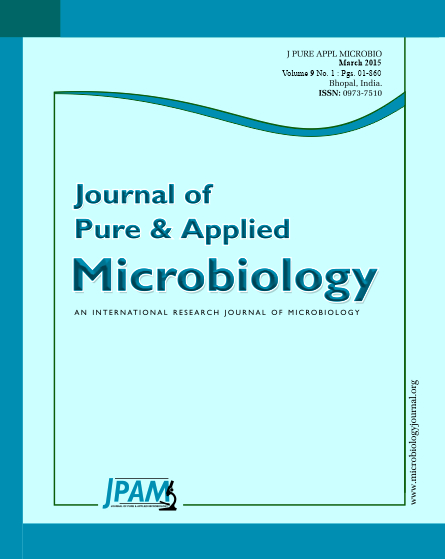Chickpea is the most important pulse crop grown mostly in rainfed areas. The crop is damaged due to wilt. Wheat is used as intercrop could help in reducing losses caused by soil borne fungi. Root exudates of various crops are known to adversely affect the pathogens build up in the soil. The root leachates of wheat evaluated against the germination of conidia of Fusarium oxysporum f. sp. ciceri in laboratory conditions. Beaker method was followed to test the efficacy of root leachates. Twenty five ml of sterilized distilled water was filled in the beaker. Ten seeds of wheat were planted on blotter paper. The root leachates of wheat collected after 10days of germination delayed spore germination of Fusarium oxysporum f. sp. ciceri by five hours while, that of five days delayed by four hours. Increasing dilution of root leachates had considerable effect on the germination of micro and macro conidia of Fusarium oxysporum f. sp. ciceri.
Chickpea, Fusarium oxysporum f. sp. ciceri, Wheat, Macro and Micro conidia Root leachates, Soil born fungi and wilt
© The Author(s) 2015. Open Access. This article is distributed under the terms of the Creative Commons Attribution 4.0 International License which permits unrestricted use, sharing, distribution, and reproduction in any medium, provided you give appropriate credit to the original author(s) and the source, provide a link to the Creative Commons license, and indicate if changes were made.


